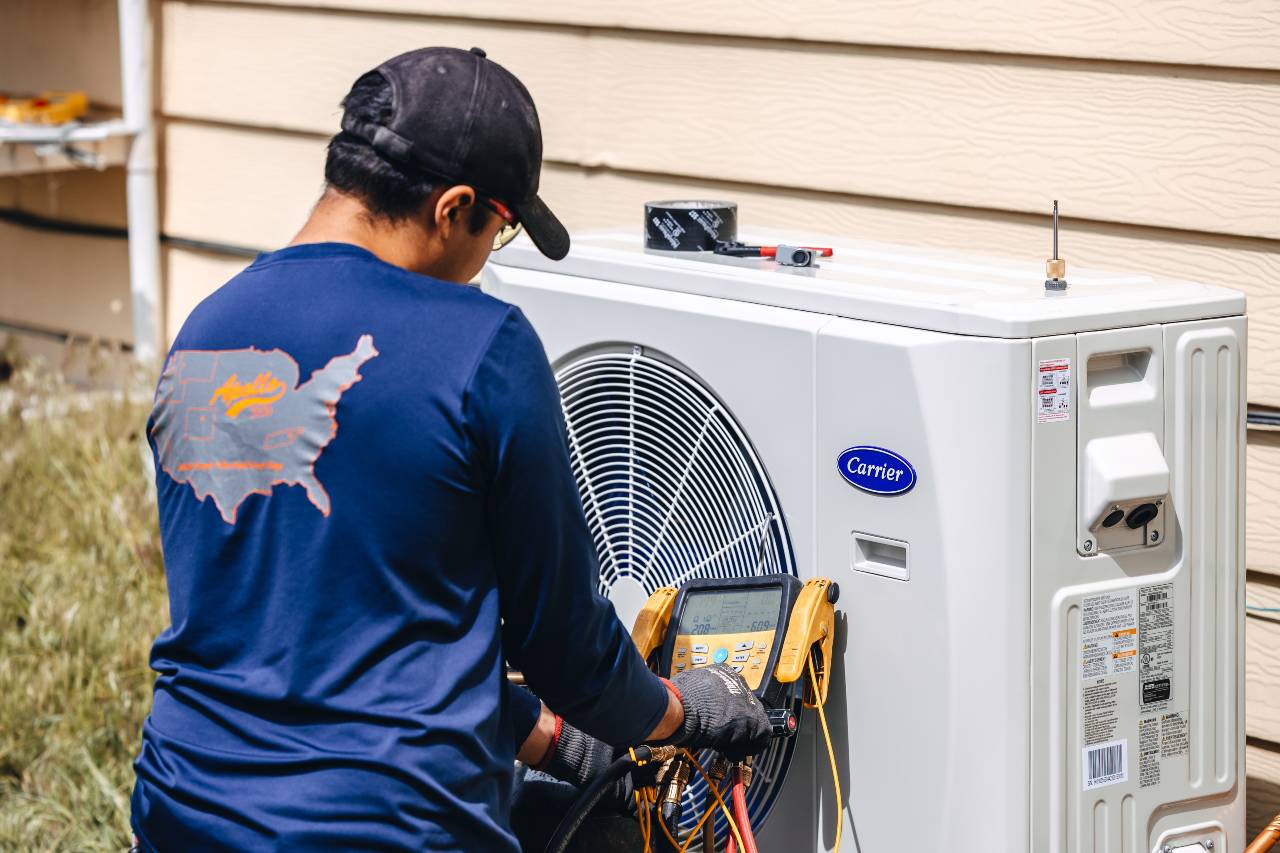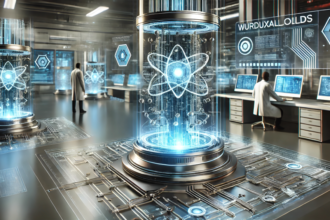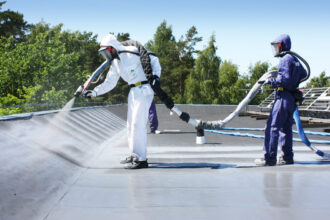Introduction
In today’s world, comfort and energy efficiency are two of the most important considerations when it comes to indoor environments. Whether it’s a home, office, or commercial building, the systems responsible for heating, ventilation, and air conditioning—collectively known as HVAC—play a central role in maintaining a comfortable and healthy atmosphere. HVAC systems have evolved significantly over the years, integrating advanced technology, smart automation, and sustainability-focused designs.
However, owning an HVAC system comes with responsibility. Proper installation, regular maintenance, and timely repairs are crucial to ensuring that the system operates at its best. This is where the services of a professional HVAC company become indispensable. From system design and installation to preventative maintenance and emergency repairs, these companies are the backbone of residential and commercial climate control solutions.
This article will explore everything you need to know about HVAC systems—from how they work and common challenges to the benefits of hiring a reliable service provider. Whether you’re a homeowner, property manager, or business owner, understanding your HVAC needs can help you make informed decisions and avoid costly mistakes.
Understanding HVAC: The Core Components
The term HVAC refers to the trio of systems that manage heating, ventilation, and air conditioning in a building. Here’s a closer look at each component:
1. Heating
Heating systems are designed to increase the indoor temperature during cold weather. Common types include:
- Furnaces: Use natural gas, oil, or electricity to generate heat.
- Boilers: Heat water that is circulated through radiators or in-floor systems.
- Heat Pumps: Can provide both heating and cooling by transferring heat between the indoors and outdoors.
2. Ventilation
Ventilation is the process of replacing or exchanging air within a space to provide high indoor air quality. This includes:
- Removing moisture, smoke, odors, heat, dust, airborne bacteria, carbon dioxide, and other gases.
- Providing oxygen replenishment.
- Temperature control and oxygen supply.
3. Air Conditioning
Air conditioning systems cool indoor spaces by removing heat and humidity. Common types include:
- Central AC Systems
- Split Systems
- Ductless Mini-Splits
- Window Units
Each of these systems has unique benefits depending on the property size, climate, and budget.
The Evolution of HVAC Technology
Modern HVAC systems have come a long way from their mechanical predecessors. Innovations in this industry have focused on improving energy efficiency, automation, and eco-friendliness. Here are some noteworthy advancements:
- Smart Thermostats: These devices learn your behavior and preferences, optimizing temperatures for both comfort and savings.
- Zoning Systems: Allow different areas of a building to be heated or cooled independently.
- Variable Speed Motors: Help reduce energy use by adjusting power output based on demand.
- High-SEER Air Conditioners: SEER (Seasonal Energy Efficiency Ratio) ratings reflect the efficiency of AC units. Higher SEER means lower energy bills.
- Geothermal Heat Pumps: Use the earth’s natural temperature to regulate indoor climates efficiently.
With these innovations, energy savings and indoor comfort are more achievable than ever before—especially when installed and maintained by a skilled HVAC company.
Why Professional HVAC Services Matter
While some homeowners may be tempted to handle minor HVAC issues themselves, it’s important to understand the value of professional service. Here’s why partnering with an experienced HVAC company is so beneficial:
1. Correct System Sizing and Installation
Improperly sized HVAC systems—too large or too small—can lead to energy waste, uneven temperatures, and short cycling. A professional company performs load calculations and designs a system tailored to your specific needs.
2. Enhanced Energy Efficiency
Expert installation and maintenance ensure that the system runs efficiently, which reduces energy bills and minimizes your carbon footprint.
3. Prolonged Equipment Life
Regular servicing helps prevent wear and tear, ensuring your system lasts for its intended lifespan—or even longer.
4. Improved Indoor Air Quality
Professionals clean ducts, replace filters, and calibrate systems to ensure healthy, clean air circulates throughout your home or business.
5. Compliance and Safety
Certified technicians adhere to building codes and safety standards, protecting your property and family from hazards such as gas leaks or electrical fires.
An experienced HVAC company brings not only technical expertise but also peace of mind.
Common HVAC Issues and How They’re Addressed
Even the best HVAC systems are subject to occasional issues. Here are some of the most frequent problems and how professionals handle them:
1. Inconsistent Temperatures
Uneven heating or cooling can stem from blocked vents, thermostat issues, or failing zone controls. A technician will diagnose and correct the root cause.
2. Unusual Noises
Rattling, banging, or screeching sounds may indicate loose parts, motor problems, or debris in the system. Early inspection prevents further damage.
3. High Energy Bills
An unexpected increase in energy usage could mean your system is working harder than it should due to a dirty filter, refrigerant leak, or failing component.
4. Poor Airflow
This could be caused by clogged ducts, a faulty blower motor, or restricted filters—all issues that a professional can resolve quickly.
5. System Won’t Start
If your HVAC system won’t turn on, it might be due to a thermostat malfunction, electrical failure, or capacitor issue.
Routine maintenance by a trusted HVAC service provider ensures that these problems are identified and resolved before they become serious.
Preventative Maintenance: The Key to HVAC Longevity
Just like a car, an HVAC system requires regular maintenance to operate at peak performance. Preventative services can include:
- Checking refrigerant levels
- Cleaning coils and condensate lines
- Inspecting and tightening electrical connections
- Replacing or cleaning air filters
- Lubricating moving parts
- Testing thermostat operation
Most reputable providers offer annual or biannual maintenance plans, which often include discounts on parts and emergency service. Partnering with the right HVAC company for ongoing service not only improves reliability but can also reduce long-term costs.
What to Look for When Hiring an HVAC Company
Choosing the right service provider can make a world of difference in your experience and outcome. Here are key factors to consider:
- Licensing and Certification: Always work with a licensed contractor certified by relevant local or national organizations.
- Experience: Look for companies with a proven track record in handling the type of system you own.
- Transparent Pricing: Reputable companies provide written estimates and discuss costs upfront.
- Customer Reviews: Positive reviews and ratings from past clients are a strong indicator of quality service.
- Availability: Choose a company that offers emergency services and is responsive to customer inquiries.
- Warranties and Guarantees: Good companies stand behind their work with guarantees on labor and parts.
Environmental Responsibility and HVAC
With growing awareness of climate change and environmental impact, the HVAC industry is making strides in sustainable technology. Environmentally responsible practices include:
- Using refrigerants with lower global warming potential (GWP)
- Recycling old HVAC units and components
- Installing energy-efficient systems certified by ENERGY STAR
- Offering green HVAC solutions like solar-assisted heating and cooling
As a property owner, you can reduce your environmental impact by choosing eco-friendly systems and partnering with an HVAC company that shares your sustainability goals.
Conclusion
HVAC systems are a cornerstone of modern comfort, efficiency, and indoor air quality. As technology continues to evolve, these systems are becoming smarter, more efficient, and more environmentally friendly. But regardless of the sophistication of your system, regular maintenance and expert service remain non-negotiable.
From installation and diagnostics to preventative care and emergency repairs, a trusted HVAC company is your ally in keeping your indoor environment safe, comfortable, and cost-effective. Investing in professional service not only ensures optimal system performance but also protects your property’s value over time.
Whether you’re building a new home, upgrading an aging system, or just looking to stay cool in the summer and warm in the winter, make sure you choose a service provider that’s equipped to meet your needs—today and for years to come.

















